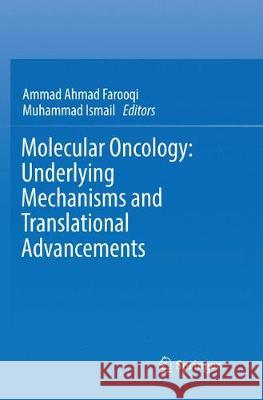Molecular Oncology: Underlying Mechanisms and Translational Advancements » książka
topmenu
Molecular Oncology: Underlying Mechanisms and Translational Advancements
ISBN-13: 9783319850573 / Angielski / Miękka / 2018 / 302 str.
Kategorie BISAC:
Wydawca:
Springer
Język:
Angielski
ISBN-13:
9783319850573
Rok wydania:
2018
Wydanie:
Softcover Repri
Ilość stron:
302
Waga:
0.44 kg
Wymiary:
23.39 x 15.6 x 1.65
Oprawa:
Miękka
Wolumenów:
01
Dodatkowe informacje:
Wydanie ilustrowane











